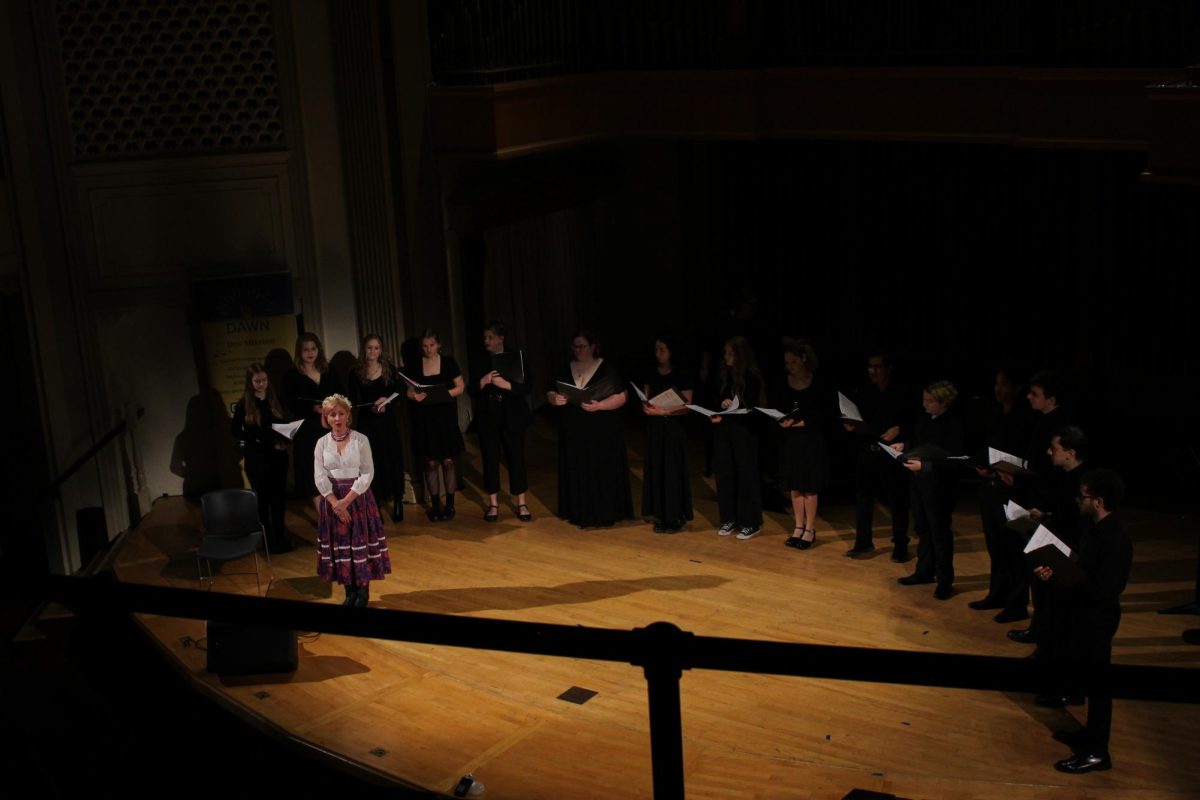The recent release of the federally mandated Clery Act report has brought up controversy about the way sexual assault is handled and reported on college campuses.
Both the University of Southern California and Occidental College have admitted to under reporting the number of sexual assault cases that occurred for the 2012 academic year. If investigated by the Department of Education, these schools could face fines of over $450,000.
Investigations into these two colleges were slowed by the government shutdown, but they started a trend among other schools to review their policies on sexual assault.
All colleges and universities that participate in the federal financial aid program are required to comply with the Clery Act, a part of the Title IX anti-discrimination law. Linfield recently made its Annual Security and Fire Safety Report available to the public to satisfy the Clery Act requirement.
In 2011 Linfield reported nine cases of sexual assault that occurred on campus and one case in 2012. Data from the previous three years is included in the report as part of the Clery Act requirement.
“To clarify, there were two forcible sex offences in 2012,” Rebecca Wale said, director of college public safety and environmental health and safety. “One occurred in student housing and one occurred at a non-campus location.”
All Linfield freshmen are required to participate in a sexual assault training session run by the Consent Awareness Training Squad.
“I learned 100 percent more about sexual assault than I knew on the first day of class through CATS, so I would say that it is very useful for freshman to take,” sophomore Adam Bullard said. “I would say it is pretty strong and effective and as long as we have students taking it seriously. It is only as strong as its representatives make it.”
In the CATS training students are urged to file either an anonymous or formal misconduct report form if they feel they have been the victim of a sex offense.
“CATS has given me the knowledge and skills to help advocate for people in some of the most difficult times in their lives,” sophomore Justin Frederick a CATS leader said “I want to change the culture here at Linfield. Many people think this topic is humorous or not a big deal because it has never happened to them. This is a problem at colleges around the world because this is such a sensitive subject, our CATS presentations can be very difficult.”
Sexual assaults on college campuses have a tendency to go unreported.
Many researchers attribute this to the culture of victim-blaming, when the victim of a crime is held partially or entirely responsible for the offense against them.
“I believe that more can always be done to prevent sexual assault, that our community can take more steps to interrupt the cycle of violence but these steps need to come from the ground up,” Adria Godon-Bynum said, the coordinator of student health and wellness programming at Linfield.
“Overwhelmingly sexual assaults involve people that know each other and the concept of stranger danger is outdated and inaccurate.”
Linfield uses The Handbook for Campus Safety and Security Reporting, prepared for the U.S. Department of Education’s Office of Postsecondary Education to define sexual assault.
The handbook defines forcible sex offenses as “any sexual act directed against another person, forcibly and/or against that person’s will; or not forcibly or against the person’s will where the victim is incapable of giving consent.”
“Unfortunately sexual assault remains the most under reported crime in the United States,” Godon-Bynum said. “Our community is not unique in this manner. The Sexual Misconduct Response Team, our multi-disciplinary, collaborative response team, will be looking at ways to improve reporting within our community over the next several months.”
The McMinnville Police Department also publishes an annual crime report that is available to the public.
They do not have a category for sexual assault, but had 12 accounts of rape and 69 accounts of other sex offenses during 2012 for the entire McMinnville area.
Although many accounts of sexual assault and violence go unreported Godon-Bynum believes that this trend can be stopped if people change their attitude toward sexual assault.
“I think it is vital for all students to know that sexual assault is not solely a woman’s issue,” Godon-Bynum said. “Prevention efforts must include men and boys. Members of all communities are affected by sexual violence and in order to affect change a community must work together to put a stop to sexual violence.”
Olivia Marovich / News editor
Olivia Marovich can be reached at [email protected].






